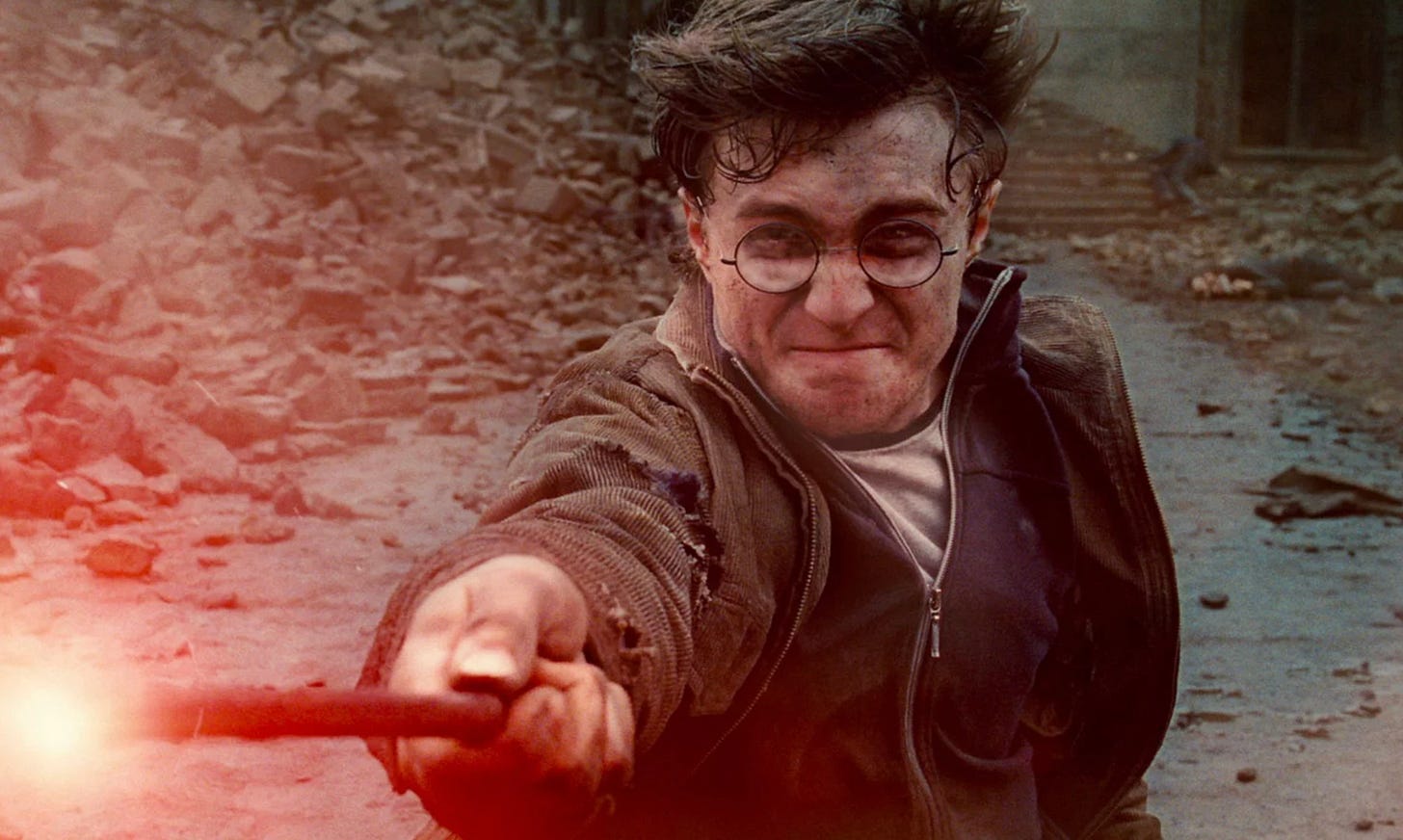Harry Potter is still huge
There's a reason HBO would want to make a Harry Potter show, even amid controversy and toxicity.
The Gist
HBO announced the three leads of its upcoming Harry Potter TV series this week.
Potter has been shrouded in controversy and toxicity in recent years, but the franchise is still hugely popular.
A Potter video game was the best-selling game of 2023 and the books are still among the best-sellers on Amazon.
This week, HBO announced the three main leads — as in, Harry, Ron, and Hermione — of its upcoming Harry Potter TV series.
Naturally, everyone was very cool about it.
I don’t need to reiterate too heavily the multiple lanes of controversy and toxicity the Harry Potter franchises finds itself in, but for the uninitiated, a brief recap: author/creator JK Rowling is a transphobic troll, spurring some fans to boycott the series. Then there are other kinds of culture war trolls, furious — among other things — that the show has dared cast a Black man as Snape.
Of course, there are others of the non-toxic variety who just feel we don’t need a TV series based on the books after we already got eight feature films based on the books this century. A fair observation.
But despite all that, HBO (or more specifically, parent company Warner Bros. Discovery) is pushing forward with this show. Why? Because Harry Potter is still massively popular. And anyone who thinks this show won’t be is kidding themselves.
I don’t think the average person who isn’t chronically online knows or cares about Rowling’s viewpoints, at least enough to tank this show. It certainly hasn’t tanked the franchise as a whole.
The Potter video game “Hogwarts Legacy” was the best-selling game of 2023, the first time a “Call of Duty” game hadn’t been the top seller since 2018. It’s among the 40 biggest games ever.
The first book is the second best-selling children’s book on Amazon right now. Five of the books (audiobooks, to be exact, but whatever) are currently in the top 10 of adventure books, including number one. Most of the books are among the top 20 most-read on Kindle this week.
Lots of people are still buying/reading Harry Potter books or engaging with the franchise. Many of them are likely kids discovering it for the first time, who may not have grown up with the movies — which means they’ll want to watch the show, which means their parents will probably watch it, too.
By the time this show comes out, nearly 20 years will have passed since the movies ended. That’s a lifetime in media today. A new generation of fans are going to grow up with this show in a way that the previous generation grew up with the movies.
Plus, there’s little to suggest that fans can’t accept multiple actors in the same role in a short span of time. There were three Spider-Men in a 10-year span (Maguire in 2007’s “Spider-Man 3,” Garfield in “The Amazing Spider-Man” movies, and Holland in 2017’s “Homecoming”). Ditto for Batman from 2012 to 2022.
Sure, there have been been “Fantastic Beasts” movies over the years since the main movie franchise concluded, Harry Potter spinoffs that flailed after three entries. But people forget that the first movie was a hit, grossing over $800 million worldwide, and the sequel earned a not-terrible $655 million. It was with the third movie, “The Secrets of Dumbledore,” that Warner Bros. gave up on the prequel franchise after it earned just over $400 million. And I attribute that more to poor audience reception/word-of-mouth, and a still-recovering post-pandemic theatrical industry, than any Rowling-related controversies.
This Harry Potter series also reflects HBO’s larger move into more IP-driven projects. On top of “The Last of Us” and “Game of Thrones” spinoffs, it released “The Penguin” and “Dune: Prophecy” last year, and will debut “It: Welcome to Derry” this fall. DC’s “Lanterns” series is also in the works for HBO.
The push has gained mixed results so far. The GOT series “House of the Dragon” and “The Last of Us” are both hits that have received Emmy attention. The former’s recent season finale dropped in viewership from the premiere on the night it aired, but it’s too soon to know whether that reflects any broader potential concerns.
Meanwhile, “Prophecy” seemed to come and go with little fanfare; I don’t believe it ever charted on Nielsen’s weekly streaming charts and it received lukewarm reviews/buzz.
“The Penguin” though drew widespread acclaim, will almost surely be in the Emmy limited series race, and was more of a hit; Nielsen said it was streamed for nearly 4 billion minutes in the US in the two months between its premiere and its finale, which might average roughly 8 million viewers in that time just on Max, not HBO proper (not an exact science).
I recently wrote about how streamers should stop trying to make the next Game of Thrones, as fantasy novel IP — like “The Witcher,” “Rings of Power,” and just-canceled “Wheel of Time” — has not translated into similar success stories. The biggest TV shows since GOT ended have spanned genres, cultures, and IP — from Netflix’s “Squid Game” and “Bridgerton” to Amazon’s “Fallout” to Paramount’s “Yellowstone” franchise.
But if anyone can create the next Game of Thrones, it’s obviously HBO — it may just not be one of their Game of Thrones series, but something more young adult.
No news recap tonight (see my recent Mission: Impossible ranking for that). See you next time.






Great read, I’m pretty keen to see how the series turns out, seeing as I grew up with the films!
Most definitely a long-term play from WBD to further produce hits & bring younger audiences into their egosystem